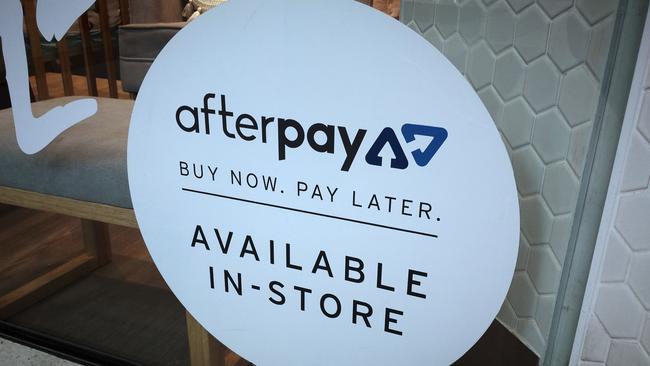Barefoot Investor: Zero interest credit cards should be avoided
If you think something is too good to be true, it normally is. So when I heard about the big banks’ last-ditch effort to make credit cards cool again with their “zero-interest” products — I knew there would be a serious catch, writes Barefoot Investor.
Barefoot Investor
Don't miss out on the headlines from Barefoot Investor. Followed categories will be added to My News.
When you’re doing my job you just never know who’s going to walk through the door.
One day a woman in her 60s sat down in front of me — and totally blew me away.
“Let’s start with your debts”, I said, pulling out a piece of paper.
“Well, I have a credit card,” she said.
“And how long have you had it?” I asked, biro in one hand, fingers poised on my calculator.
“Forty-four years,” she replied.
“You mean four years,” I said, correcting her.
“No, I mean 44 years. My mum gave it to me when I turned eighteen … and I’ve had it ever since.”
Pluck-a-duck!
She’d been paying interest on the balance longer than I’d been alive.
This woman was from another era — the Bankcard era.
In 1974, banks kicked off Australia’s first credit card, Bankcard, with greedy gusto by mass-mailing cards to customers without them even asking for it.
For the poor it was a revelation. Free money from the bank!
Times change.
Today, credit cards are viewed like cigarettes: expensive, unnecessary and lethal if you get hooked.

Sure, there are still some poor bastards who can’t quit and continue smoking (and paying credit card debt), but the majority of people avoid them, especially young people.
Why?
Two reasons: First, like smoking, we now know the truth. Credit cards are a rort.
The majority of cards haven’t budged from charging nosebleed 20 per cent rates despite interest rates being basically zero.
Second, as a consequence of this, young people have moved on to alternatives like Afterpay, which to me are the equivalent of vaping.
(And, like vaping, Afterpay claims it’s (financially) much healthier for you — which explains how they’ve managed to slip through the responsible lending provisions — yet where there’s smoke, there’s financial fire.)
And that brings us to today, with two old bankers, NAB and CommBank, recently launching “zero-interest” products in a last-ditch effort to make credit cards cool again.
CommBank called theirs the “Neo MasterCard” (hey, the kids like that Matrix film, right?).
NAB called theirs “StraightUp Card”.
Really?
This from a company that admitted to the financial services royal commission that its customers’ money all too often accidentally fell into NAB’s pockets.
Straight up.
Both cards promise “no interest payments, no late payments, no foreign currency fees, ever”.
So what’s the catch?

Well, these cards only offer small amounts of credit, up to $3000.
And they charge a monthly fee, from $10 for a $1000 limit up to $22 for a $3000 limit.
The rub is that the banks charge the monthly fee regardless of how much you spend (unless you don’t use your card at all — in which case you don’t pay the fee that month).
Yet in some cases the monthly fees can often work out to be … almost as much as a regular credit card.
So what do I think?
I think we should view all of these products as coming from cigarette salesmen.
Here’s the rub: all of these products train young people to spend money they don’t have.
And that is a terrible way to live your life long term and often leads to disastrous consequences.
Case in point: my 60-something client.
She’d spent the past four decades working two jobs just to pay some banker’s bonus. (Bonuses.) I looked at the budget we’d just written out, which showed about half her pay was going in interest.
“I just don’t see how this works”, I said bluntly, leaning back in my chair.
She pursed her lips, looked down at the floor and said nothing for a long while.
And then, in almost a whisper, she said: “Well, sometimes I don’t eat — eating is expensive.”
Tread Your Own Path!
HOW CAN I HELP MY SON MAKE GOOD CHOICES
LINDA WRITES: I like reading your column, but last week’s hit me so very hard.
I am currently having the exact experience with my 18-year-old son, who has lost some money through trading.
He does not want any advice from his parents, yet still hopes to be a “trader”.
We read your book as a family and did the three buckets with our kids for some time, but he now wants to manage all his own money (which I understand, as he is 18).
But gee it’s hard to sit by and watch him make some not-so-good choices (and hopefully learn from them). Any suggestions?
BAREFOOT REPLIES: The fastest growing segment of the gambling industry is young men.
That explains those ads on the telly that show young lads gambling and having a roguish, laddie good time on the punt.
What I’d explain to your son is that if he gambles on sports or stocks he’ll end up a loser.
And the reason he’ll lose his money is quite simple: he can’t control the outcome.
He has no edge.
He’s a patsy for the big professional investors who will chew him up and spit him out, just as surely as the gaming industry is sucking dry the accounts of impressionable young gambling-addicts-in-training.
If he really wants to be a big man and chart his own course in life, he should gamble on himself.
Get a job, learn everything he can to start a business of his own and then double down on starting his empire.
Take on the world and win!
But do it in a game where he can tilt the odds in his favour.

SALESMAN WAS USING YOU IN HIS SPIEL
SAM WRITES: I live in the Northern Beaches area of Sydney.
The other day, a real estate agent came to my door quoting you saying that house prices are sure to drop in the coming months and now is the time to sell.
I instinctively don’t trust salespeople, but is there any truth that you suggested this?
BAREFOOT REPLIES: Sam it’s a little twisted sister for my liking.
A few weeks back I wrote about the NAB CEO’s suggestion that people who found themselves in financial difficulty should sell, yet that was him saying it, not me!
In fact, I specifically said, “Please don’t misquote me: I am not saying you should sell your home”.
It sounds like the agent is using my name to make a sale (depressingly, that happens quite a bit to me these days).
My advice?
Shut the door in his face.
A MOTHER WITH A MESSAGE
EMMA WRITES: A year ago I was a fit and healthy 42-year-old single mum with two boys aged 10 and seven.
Your book has helped me get on top of my finances, and every year I re-read it (well, listen to it on my commute).
When I read it in October 2019, I realised my death and total permanent and disability insurance wasn’t anywhere near the 10-times annual salary you recommend, so I bumped it right up.
And I am so glad I did.
Last December I was diagnosed with a rare terminal cancer, and my insurer has now paid out nearly $1m.
I have been able to pay for specialist treatment not covered by Medicare, see off the mortgage and set up a trust to support my boys when I am not here.
So much of how well I am doing is because I have the financial freedom to just live.
Everyone should have this freedom. So thank you, Scott, for the work you do — you are saving lives.
BAREFOOT REPLIES: Just wow. The greatest respect I can give you is to put this in front of my community of Barefooters.
If you’re a parent, you need to follow Emma’s lead and act on this.
The “10 times your salary” figure is a very rough guide of course — you should speak to your super fund’s financial adviser (in the first instance) about what’s right for their family.
Do it for Emma. Do it for your kids. Do it TODAY.
These days I take school holidays off to spend time with the kids so I’ll see you in a couple of weeks
Got a money question? Visit barefootinvestor.com and #askbarefoot
DISCLAIMER: Information and opinions provided in this column are general in nature and have been prepared for educational purposes only. Always seek personal financial advice tailored to your specific needs before making financial and investment decisions.
The Barefoot Investor for Families: The Only Kids’ Money Guide You’ll Ever Need (HarperCollins) RRP $29.99
